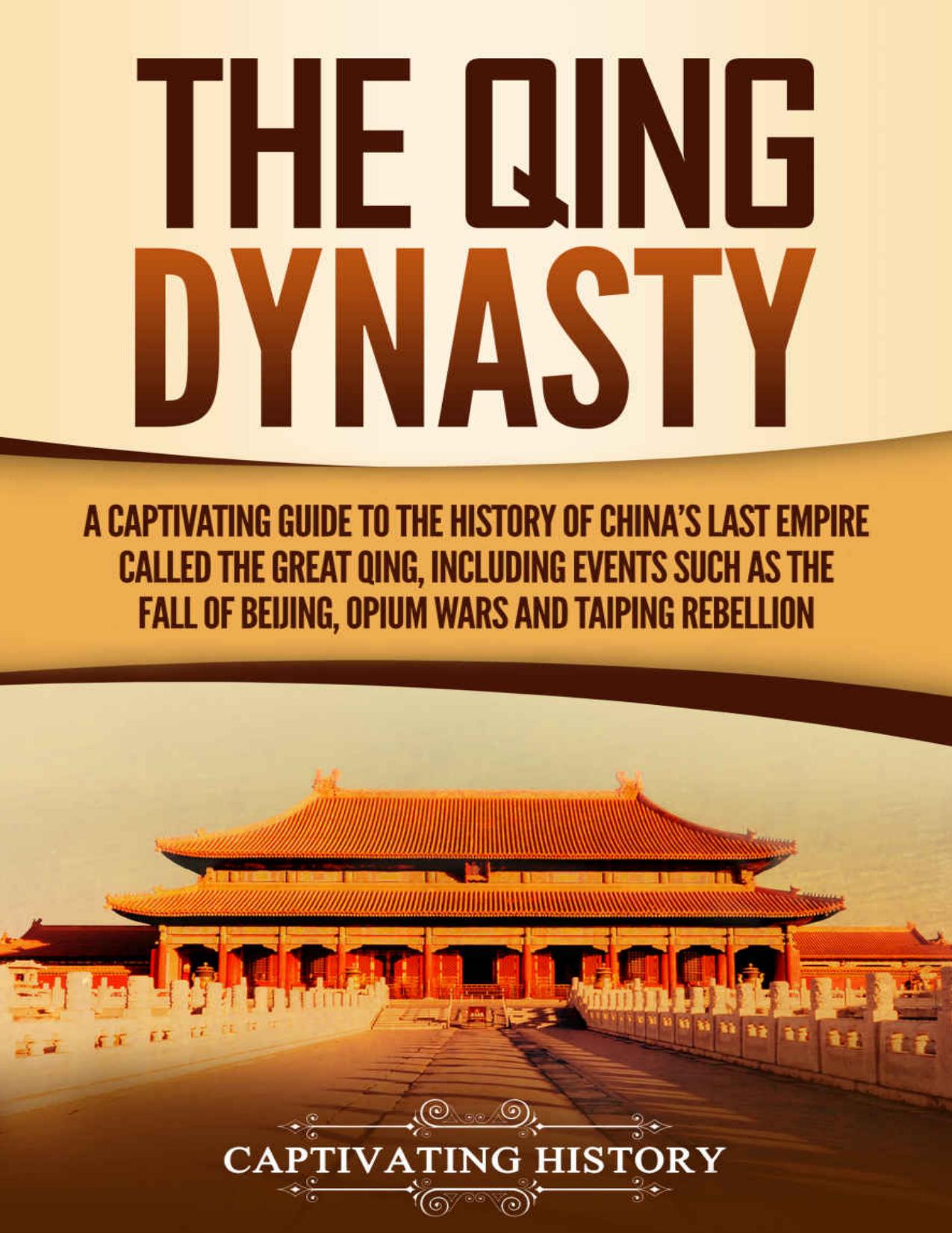The Qing Dynasty: A Captivating Guide to the History of China's Last Empire Called the Great Qing, Including Events Such as the Fall of Beijing, Opium Wars, and Taiping Rebellion by Captivating History

Author:Captivating History [History, Captivating]
Language: eng
Format: azw3, pdf
Published: 2019-12-22T16:00:00+00:00
Chapter 7 â Taiping Rebellion
Area under the control of the Taiping Heavenly Kingdom in red
https://en.wikipedia.org/wiki/Taiping_Rebellion
Between 1850 and 1864, China was torn apart not just by the Opium Wars against the British Empire; it was also torn apart due to an internal struggle known as the Taiping Rebellion, or the Taiping Civil War. The fighting started between the Qing dynasty and the Taiping Heavenly Kingdom.
China suffered greatly after the First Opium War. It also suffered natural disasters and economic problems due to a severe lack of silver, which caused the national poverty level to rise. The population of China doubled during this period of time, but the amount of agricultural land stayed the same. Famine was widespread, and the corrupt Manchu government didnât do anything to resolve it. The southern provinces of China, inhabited by the Hakka Chinese people, were one of the strongest voices against the Manchu.
The Taiping Heavenly Kingdom was founded by a charismatic Hakka man who came from a poor southern village. He called himself Hong Xiuquan, and he claimed he had a dream of a golden-haired man who called him his younger brother. He experienced this dream as a mystical vision while he was bedridden from a nervous breakdown for several days. Under the influence of Christianity, he recognized the man from his dream to be Jesus and felt obliged to spread Christianity. In 1847, Hong became a leader of a secret society with many followers and apprentices. He was the apprentice of an American Baptist missionary, Issachar Jacox Roberts, who refused to baptize Hong, as he saw it was Hongâs intention to politicize the religion. Combining Christianity with Taoism, Confucianism, and Millenarianism but claiming the rebirth of the old Chinese Shang Di faith, Hong founded Taiping Christianity.
Feng Yunshan was one of the first followers of Hong Xiuquan. He was a village teacher in a village in Hua County. He was also of Hakka descent, and together with Hong, he preached the Taiping version of Christianity. Deep in the Thistle Mountains, Feng organized a group of followers into a society under the name âGod Worshipping Society.â Feng became the strategist and the administrator of the rebellion, and Hong Xiuquan bestowed the title of âSouth Kingâ upon him.
Taiping Christianity had two other prominent leaders who claimed they had the right to speak to God and Jesus. Yang Xiuqing claimed he was deaf and mute before he was introduced into the God Worshipping Society and that he regained his ability to hear and speak at one of the Societyâs meetings. He also claimed he could enter a trance that would allow him to speak directly to God. Hong and Feng investigated the claims of Yang Xiuqing and declared them to be genuine. He participated in the Taiping Rebellion from the start and rose in the ranks of the rebels quickly. He was promoted to commander of the rebel army by Hong himself, even though he had no military experience, and he was given the title of âEast King.â
Xiao Chaogui was a farmer from Wuxuan known for his strength and valor.
Download
The Qing Dynasty: A Captivating Guide to the History of China's Last Empire Called the Great Qing, Including Events Such as the Fall of Beijing, Opium Wars, and Taiping Rebellion by Captivating History.pdf
This site does not store any files on its server. We only index and link to content provided by other sites. Please contact the content providers to delete copyright contents if any and email us, we'll remove relevant links or contents immediately.
The Art of Coaching Workbook by Elena Aguilar(51201)
Trainspotting by Irvine Welsh(21668)
Twilight of the Idols With the Antichrist and Ecce Homo by Friedrich Nietzsche(18635)
Fangirl by Rainbow Rowell(9254)
Periodization Training for Sports by Tudor Bompa(8274)
Change Your Questions, Change Your Life by Marilee Adams(7783)
This Is How You Lose Her by Junot Diaz(6889)
Asking the Right Questions: A Guide to Critical Thinking by M. Neil Browne & Stuart M. Keeley(5775)
Grit by Angela Duckworth(5615)
Red Sparrow by Jason Matthews(5476)
Paper Towns by Green John(5191)
Room 212 by Kate Stewart(5124)
Ken Follett - World without end by Ken Follett(4734)
Housekeeping by Marilynne Robinson(4449)
The Sports Rules Book by Human Kinetics(4388)
Papillon (English) by Henri Charrière(4274)
Double Down (Diary of a Wimpy Kid Book 11) by Jeff Kinney(4273)
The Motorcycle Diaries by Ernesto Che Guevara(4102)
Exercise Technique Manual for Resistance Training by National Strength & Conditioning Association(4072)
